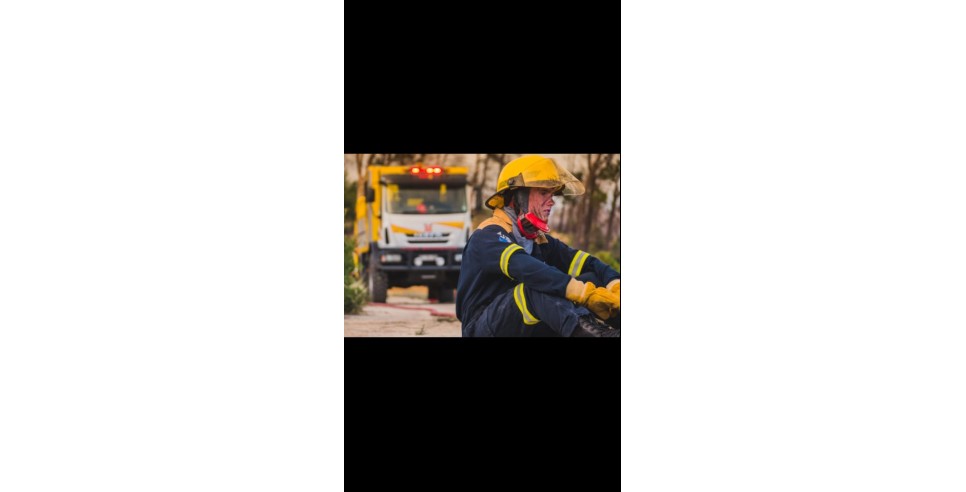
Firefighting is not an unusual job; it’s a vocation, a passion. They protect life and property, all in the line of duty, at their own peril. They are constantly training, learning, practicing and keeping up with Medical, Fire and Special Operations. International Fire Fighter’s Day pays tribute to firefighters and volunteers, who have lost their lives in the line of duty and it also celebrates the dedication and commitment of fire and rescue services worldwide. Damon Wagenaar tells us more.
Please introduce yourself.
I am Damon Wagenaar. I am 18 years old and I am a volunteer wild land firefighter in the Western Cape. My zest for firefighting started at a young age. I am currently completing my Matric (Twelfth Grade). My goal is to apply for a position at the City of Cape Town Fire and Rescue Department
Tell us where you passion for fire fighting started.
My passion started at a young age. We moved to the Western Cape from Johannesburg in 2012.It was this move that inspired me even more, especially after seeing all the mountain fires here.
What would be a typical day for a fire fighter, if there are no fires?
A typical day for a firefighter without a fire varies. It is perceived that we sit around, waiting for action. It all depends on the day, what needs to be done. There is a variety of options like equipment checks on the trucks to be done or doing training. Then there’s the cleaning of the fire house. Then on some days, if we are lucky, yes we wait around for the bell and the subsequent fire call.
What do firefighters do besides fighting fires?
There are a number of other activities. We do search and rescue, where you can have a water rescue or general rescue. We do respond to car crashes too. Sometimes we demonstrate the use of firefighting equipment at events.
What procedure is followed, when a call regarding a fire comes through?
We immediately stop what we are doing, run to the truck and kit up. The focus is on getting there. All the information will be given to us on the way to the fire. Like what type of fire it is, how big it is and where it is.
Are there different teams involved in fighting a fire?
Yes there are different teams; as fire fighting is not only about fighting fires. We have a Rescue Team if there is a car accident for instance. Then we have a Rope Rescue Team if someone needs to be rescued from a high building or a tree for example.
How do teams communicate?
Teams communicate through either using hand signals, if they can see one another, or if they have radios, they will use radios. We will most likely have a runner, aka new recruit; he would then be the person to run up and down between the teams.
When would a firefighter use the Mayday call?
We don’t really have the Mayday call. If we are stuck in a situation we radio for backup.
What would be considered the worst case scenario in fighting a fire?
The worst case would be if we are stuck without an escape route and we cannot get hold of the other teams on the fire line.
Are there different types of fires?
Yes there are 6 different types of fires.
1. Class A - fires involving solid materials such as wood, paper or textiles.
2. Class B - fires involving flammable liquids such as petrol, diesel or oils.
3. Class C - fires involving gases.
4. Class D - fires involving metals.
5. Class E - fires involving live electrical apparatus. (Technically ‘Class E’ doesn’t exists however this is used for convenience here)
6. Class F - fires involving cooking oils such as in deep-fat fryers.
Does this have an impact on how to extinguish the fire?
Yes each class of fire has its own way of being extinguished. You need the right types of equipment that are designed to put out specific types of fires.
When is a fire treated as arson?
When the evidence is visible or when the person has been seen or caught lighting the fire.
How long is a shift for a firefighter?
A shift for a firefighter is 24 hours.
What is the difference between a fire truck and a fire engine?
A fire engine carries water and helps put out the flames. A fire truck carries all the rescue equipment, like the ground and aerial ladders as well as the rescue tools for various types of accidents.
Explain the term smoke jumper.
It is a highly trained firefighter, who parachutes into a remote area to combat wildfires.
Do you have your own lingo (language); if so give us some examples.
We don’t use big fancy words, but there are slang terms used only by firefighters. We use more hand signals though.
What has been your most rewarding experience up to date?
A fire that I went to in February 2019 in a small town called Grabouw. We managed to save a wine farm and most of the farm workers’ houses.
Name your favorite quote or mantra to live by.
“You were born with the ability to change someone’s life, don’t ever waste it.” Dale Partridge
This goes out to all the firefighters and volunteers all over the globe. Respect and thank you!









